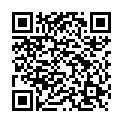|
|
|
| Module code: KIM-SKKS |
|
|
4S (4 hours per week) |
|
6 |
| Semester: 1 |
| Mandatory course: yes |
Language of instruction:
German |
Assessment:
Case study (50%), presentation (50%) approx. 10 minuten
[updated 17.04.2025]
|
KIM-SKKS (P222-0066) Computer Science and Communication Systems, Master, ASPO 01.10.2017
, semester 1, mandatory course
|
60 class hours (= 45 clock hours) over a 15-week period.
The total student study time is 180 hours (equivalent to 6 ECTS credits).
There are therefore 135 hours available for class preparation and follow-up work and exam preparation.
|
Recommended prerequisites (modules):
None.
|
Recommended as prerequisite for:
KIM-SKTA Strategic Communication for Technology Selection Seminar
KIM-VKT
[updated 15.07.2020]
|
Module coordinator:
Prof. Dr. Horst Wieker |
Lecturer:
Prof. Dr. Horst Wieker (seminar)
[updated 31.03.2025]
|
Learning outcomes:
Students will learn how to use important protocols in complex, heterogeneous communication networks. The will be able to use this knowledge to analyze and further develop the interrelationships and interaction of the individual network functions and the use of network protocols. Students will learn migration strategies for the introduction of new technologies into classic communication structures. Students will be able to describe a complex communication topic comprehensively in the form of a paper and present it to the other students in a long lecture.
[updated 26.02.2018]
|
Module content:
Compositions. Classic IT/TC topics will be the subjects of the compositions. Possible examples are:
UMTS - IP architecture, transport and service quality
LTE - basics, architecture and standard
-Next Generation Network - IMS
Mobile operating systems
V2X communication
[updated 17.04.2025]
|
Recommended or required reading:
Project-related literature will be announced depending on the topic.
[updated 26.02.2018]
|
Module offered in:
WS 2024/25,
WS 2023/24,
WS 2022/23,
WS 2021/22,
WS 2020/21,
...
|


